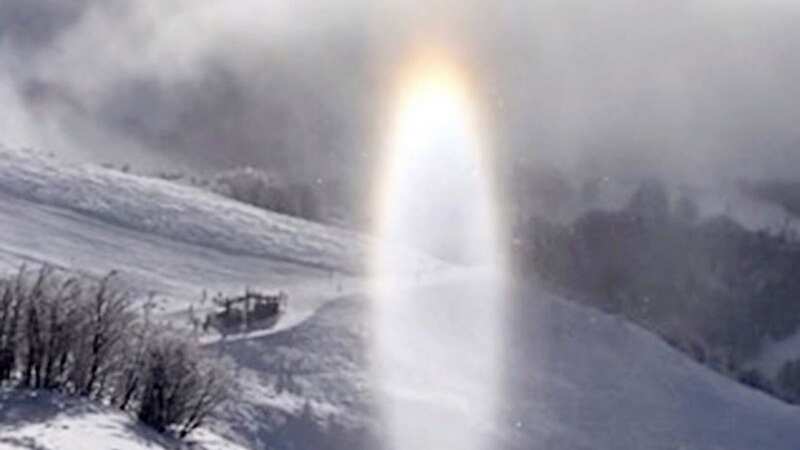

An Argentine photographer thinks he might have captured an unworldly phenomenon, causing online excitement towards the “portal to an alternative dimension” in his snap.
Gaby Chavez was photographing the Cerro Catedral ski resort in Patagonia, southern Argentina, when he caught the strange optical spectacle. Chavez posted his capture on Instagram, where it gathered quite a bit of interest from the online community, it was reported.
He asked his followers in the caption: “A portal to another dimension? Nature [is] always surprising, snow crystals flying, and the sun’s rays filtering through the cloud!” The picture shows a bright oval sitting on the ski slopes - a rounded ray of light opaque at the sides and translucent in the middle.
But unfortunately, there is an explanation behind the picture - and it is one which doesn’t involve the miraculous discovery of a multi-dimensional reality. The phenomenon is known as a ‘sub-sun’, which appears as a glowing spot within clouds or mist when seen from above, the Daily Star reported.
It is generated by the sun’s reflection on a cloud of ice crystals suspended in the atmosphere and can only ever be seen from above - and when directly below the sun. The reflection of the sunlight on the ice crystals creates the white light. The optical phenomenon belongs to the family of halos for this reason.
 TOWIE's Chloe Brockett makes cheeky dig at Saffron Lempriere during filming
TOWIE's Chloe Brockett makes cheeky dig at Saffron Lempriere during filming
In effect, the ice crystals act as a large mirror therefore creating an image of the Sun which appears below the horizon - similar to the reflection of the sun in water. After Chavez uploaded the eerie video to Instagram, social media users shared their reactions to the phenomenon.
"It's time for you to go back from where you came, friend haha," one tongue-in-cheek Instagram user said in a comment. "What a beautiful moment!" penned another, while a third wrote: "Never seen anything like this. Unbelievably magical."
Another user gave high praise to Chavez: "I love that you saw it and recorded it. Someone who loves nature, someone who loves what it does." Beyond strange bursts of light, the world of futuristic science has seen some more major news this week.
Scientists in Australia have been handed a fortune to develop human-style brains for machines. They are planning to grow nearly a million brain cells on silicon chips so they can be “taught” to perform tasks in sync with tech, including self-driving cars. Leading the research, Associate Professor Adeel Razi said: “(This work) merges the fields of artificial intelligence and synthetic biology to create programmable platforms.
This new capability may surpass the performance of existing hardware. The outcomes would have implications across planning, robotics, automation, brain-machine interfaces and drug discovery.” Melbourne’s Monash University-led scheme will receive almost £315,000 for the work.